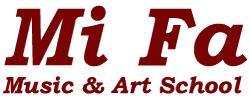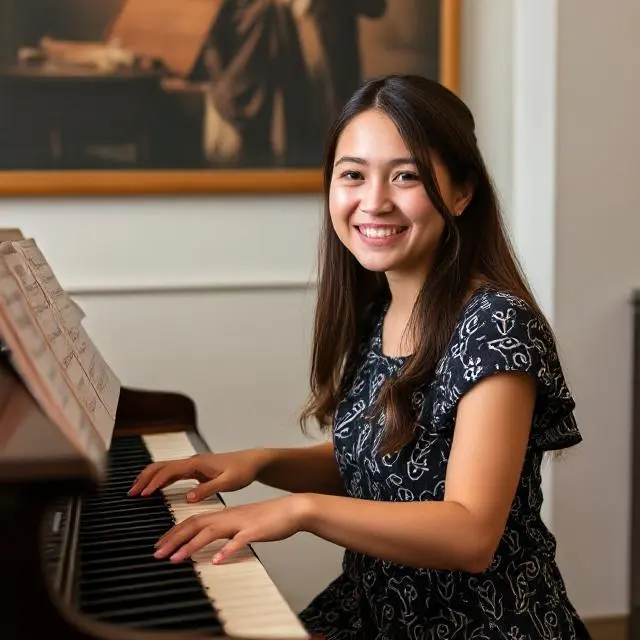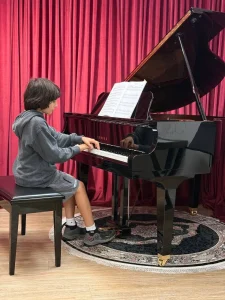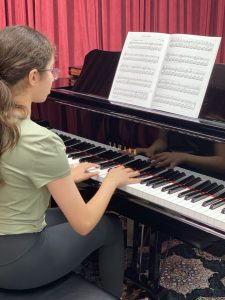Mastering the RCM Piano Exam: A Comprehensive Guide for Success
Preparing for the RCM piano exam can be both exciting and challenging. With the right strategies and support, students can build strong performance skills while gaining formal recognition through music certification from the Royal Conservatory of Music. This guide will help students navigate the exam process with confidence and clarity, offering actionable advice on piano exam prep from beginner to advanced levels.
Understanding the RCM Piano Examination Structure
The Royal Conservatory of Music (RCM) offers a comprehensive music certification program designed to assess technical, theoretical, and performance skills. The RCM curriculum is divided into progressive levels, each with specific requirements in repertoire, technical exercises, sight-reading, ear training, and music theory. Students earn official certification upon successful completion of each level, contributing to academic credit and long-term musical development.
How to Prepare for Each Level: Strategic Preparation Timeline
A timeline-based approach is essential to successful piano rcm exam preparation. Here is a recommended preparation framework:
- 6–9 Months Before the Exam: Begin by selecting appropriate repertoire from the RCM syllabus. Understand the technical and theoretical requirements of your specific level.
- 4–6 Months Before the Exam: Focus on building muscle memory through consistent technique practice and incorporate sight-reading and ear-training exercises into your routine.
- 2–3 Months Before the Exam: Start performing full run-throughs of your pieces. Record yourself and review your playing with your piano teacher.
- 1 Month Before the Exam: Fine-tune your interpretation, dynamics, and articulation. Simulate the exam environment to build confidence. also Book your Mock Up RCM Exam in MiFa Music & Art School.
A strategic timeline allows you to tackle each component of the RCM piano exam in a structured, low-stress manner.
Effective and Expert Practice Strategies
Success in the RCM piano exam stems from quality practice, not just quantity. Focused sessions using techniques like slow practice, hands-separately practice, and deliberate repetition are key. Break down challenging passages and rotate between technical drills and repertoire. Set weekly goals aligned with the RCM curriculum and regularly self-assess or use checklists to track progress.
Working with a piano teacher to create personalized practice plans ensures that each session builds toward exam readiness. Balanced and methodical preparation enhances retention and confidence.
Enhancing Musicianship Skills
Beyond performance, the RCM curriculum emphasizes musicianship—essential skills like sight-reading, ear training, rhythm recognition, and music theory. These areas are critical for success on the RCM piano exam and for becoming a well-rounded musician.
Incorporate these components early and regularly into your study routine. Apps, flashcards, and supervised exercises can help reinforce these skills. Practicing musicianship alongside repertoire makes the preparation process more comprehensive and integrated.
Mental and Physical Preparation
Preparing for a piano exam involves both mental resilience and physical readiness. Use visualization techniques, mindfulness exercises, and mock performances to manage performance anxiety. Avoid burnout by maintaining proper posture, hand health, and rest.
Make time for breaks and cross-training activities like stretching or light physical activity. These strategies help you approach the exam with mental clarity and physical ease, minimizing fatigue and stress.
Exam Day Tips
On the day of your RCM piano exam, preparation meets opportunity. Here are some final tips:
- Get a full night’s sleep and arrive early.
- Warm up lightly beforehand, but avoid intense last-minute practice.
- Bring all required documents and materials.
- Approach each component—technical, performance, and musicianship—with calm focus.
Remember, the examiners are looking for musical expression and understanding, not perfection. Trust your preparation.
The Role of Your Piano Teacher
A qualified piano teacher is an invaluable partner in RCM piano exam preparation. They offer personalized guidance, repertoire selection, technique correction, and encouragement. Regular assessments and mock exams help simulate the real exam environment.
At every stage of your preparation, your teacher ensures alignment with the Royal Conservatory of Music standards. Their insights can help transform anxiety into confidence and bring out your best performance.
How MiFa Supports Exam Success
RCM-focused piano lessons in North Vancouver are designed to guide students through each level of the RCM curriculum. At MiFa Music & Art School, our experienced, RCM-certified instructors provide:
- Individualized lesson plans
- Structured progress tracking
- Mock exams and performance coaching
- Comprehensive musicianship training
Our supportive and academic environment helps students achieve their music certification goals with clarity and confidence.
Conclusion
RCM piano exam preparation is a rewarding journey that strengthens musicality, discipline, and expression. By understanding the structure of the RCM curriculum, implementing a strategic preparation timeline, enhancing musicianship, and working closely with a piano teacher, students can approach their music certification goals with purpose.
At MiFa Music & Art School, we’re proud to support your path to success—every scale, sight-reading session, and sonata at a time.





